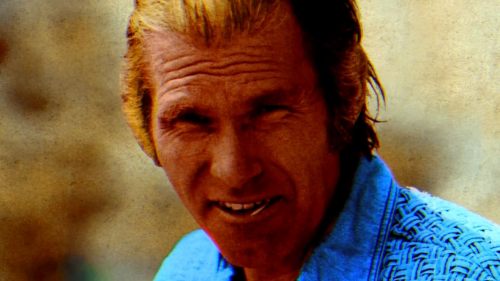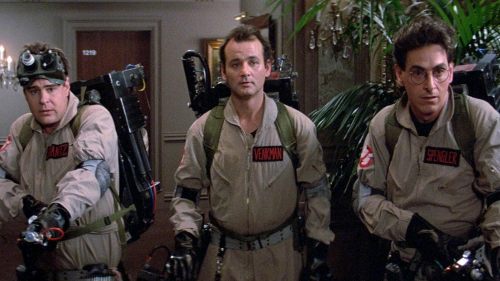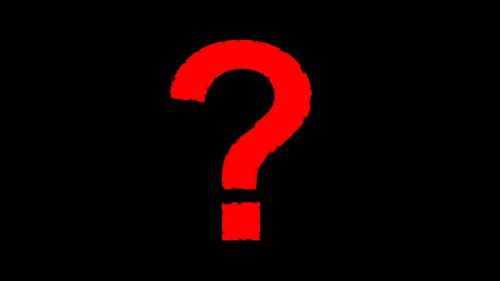Collins’ Crypt: TAKING SHAPE Is A Must-Read For HALLOWEEN Franchise Devotees
While the Friday the 13th and Nightmare on Elm Street franchises have been treated to epic length documentaries and books covering their respective franchises, not to mention smaller series like Evil Dead and Return of the Living Dead, the Halloween series has been curiously under-explored in those departments. While all of the films (save the newest one) have been given lavish special editions on DVD and Blu-ray - multiple incarnations in some cases - no one's ever taken on the unenviable task of documenting the entire franchise in a Crystal Lake Memories or Never Sleep Again type fashion*. Instead, we got something a little more interesting and unusual: a book about the Halloween films that never were.
From Dustin McNeill (who covered similar "what if?" territory with Slash of the Titans) and Travis Mullins, Taking Shape: Developing Halloween From Script to Scream runs through the entire eleven film franchise, but instead of focusing on production stories and cast recollections, the authors dig into the story ideas that didn't make it or got completely overhauled along the way. Rick Rosenthal's original cut of Halloween II, the Nigel Kneale draft of Halloween III, the many, many changes to Halloween 6... it's all here, with detailed summaries of unused/earlier scripts, directors who came and went, and all kinds of nitty-gritty details that casual fans probably wouldn't care too much about, but die-hard Hallo-philes such as myself will happily consume - I read the 440 page book in about three sittings, whereas usually a book takes me about as many weeks if not more.
Going through each film chronologically, the book's format is pretty simple: McNeill and Mullins discuss how the last film performed and the mindset of the series' owners with regards to how to approach the next one, run through a few discarded script ideas (when applicable), then provide a solid summary of the finished film - which I'd argue is fairly unnecessary since this book will only appeal to the folks who have watched them all a dozen times, but I digress. After that, they tackle deleted material (some of it never filmed) and alternate versions if they exist, followed by an interview or two with that respective film's writer, novelist, or director (with the occasional curveball, like Dean Cundey or H40's executive producer David Thwaites. The authors remain relatively objective about this or that film's quality; they will note things that don't make a lot of sense (cough, thorn cult, cough) and how the fanbase as a whole felt about a certain film, but that's about it - so if you're the world's lone defender of Resurrection, you won't get too angry reading that section.

Now, as you're probably aware by now, I tend to feed on info about this particular series. The commentaries, the reunion panels, the making of pieces, the Fangoria articles... I've read/listened to them all, multiple times in many cases. As a result, I wasn't expecting to learn anything new when I read the book - I just thought it'd be a good timekiller, and the timing (it was released on October 17th) was perfect for this sort of thing. And to be sure, in the (brief) section covering the first film, there wasn't much I didn't already know: the film's origins as "The Babysitter Murders", the TV version scenes that were shot during production of Halloween II, etc. are all covered and yield few surprises to anyone who has gone through any of the various documentaries on the first film (such as Halloween: The Inside Story - my personal favorite but I am of course quite biased).
But you best buckle up for plenty of (likely) new info on the sequels, which naturally all had much bumpier roads to the screen as what began as a simple independent film became a big franchise with far too many cooks in the kitchen. It's well known that Halloween II director Rick Rosenthal turned in an unsatisfying cut of the film, forcing producer/co-writer John Carpenter to fix it up with a couple of new scare scenes and gorier deaths, but few fans have ever taken into consideration how much these changes ended up creating plot holes in the film, some of which were fixed with editing and yet more shooting, but others remain. Ever wonder why Brackett is seemingly the last to be notified about Annie's death? That's because things in the first half-hour got moved around, also because the news reporter is heard in the background during one of the new scenes, offering info that he shouldn't have had just yet. McNeill and Mullins also help explain why Laurie is suddenly comatose during the second act - the result of Dr. Mixter giving her too many sedatives after a panic attack that was also deleted. Considering how one of the main complaints about H2 is how Jamie Lee Curtis has nothing to do for the bulk of it, it's interesting to discover her role wasn't always so minimized.
We also get to learn about how Tommy Lee Wallace ended up with sole writing credit on Halloween III, something he's long admitted is nonsense. Nigel Kneale's script is fairly similar overall but has some major differences from the film we got (including, among other things, Cochran using wicker pods for his victims), and when Carpenter asked him to make some changes, Kneale refused to comply and had his name taken off instead. Carpenter then made the changes himself, after which Wallace did his own draft. With Kneale taking his name off and Carpenter never having it on there in the first place, Wallace ended up with the credit even though by his own estimation the finished film is still about 60% Kneale's. The novelization (also out of print, though usually not *as* expensive as the others) has more elements from Kneale's script included, though I wish we could read it for ourselves - the thorough summary here seems to be as good as we will get for the time being.

After going through H4 (which had relatively little to talk about beyond a handful of discarded scenes of minimal significance), we get to the series' most troubled productions, 1989's Halloween 5 and 1995's Curse of Michael Myers. For my money, the biggest bombshell in the book is the reveal that Jamie Lloyd (Danielle Harris' character) not being evil in H5, as suggested by H4's finale, was not a decision by the oft-derided Dominique Othenin-Girard, but series producer/godfather Moustapha Akkad. Per the interview with original writer Michael Jacobs, he was given "marching orders" that Jamie would not be evil, orders that came from Akkad (as well as theater owners, who presumably feared a similar public reaction as Halloween III if Michael Myers wasn't the killer). Othenin-Girard admits he didn't really like the idea of the girl being evil anyway, but apparently even if he did, it was never going to happen. As for Curse, its struggles are legendary and vast enough to warrant a book of its own, and you can expect to add more trivia to your mental IMDb page for this particular entry. Did you know one-time director Fred Walton wanted to make something along the lines of Friday the 13th: The New Beginning, setting the film at a halfway house for trauma survivors, and have Jamie blow her brains out? Suddenly her farm thresher death doesn't seem so bad.
This is of course when the Weinsteins got involved with the series, so naturally the production issues become more and more widespread, and the authors do their best to offer a complete history, but honestly there were just so many problems, so many reshoots, and so many different producers making decisions that there are some unanswered questions. For example, it's noted that Bill Moseley quit Rob Zombie's Halloween II after a day of shooting, forcing Zombie to recast his role with another actor (Jeff Daniel Phillips, who played two roles as a result) but not why the actor - and Zombie regular - left so suddenly. But on the flip side, since these films are newer, the authors were able to land interviews with bigger names - including Kevin Williamson for H20, giving a rare lengthy insight into his involvement with the film, and the original writer of Resurrection, who isn't any happier with the finished film than any of us are.
Obviously there's a lot more, but I don't want to give all of its fun reveals away. Yes, it's a shame that they couldn't land certain individuals to get their side of certain heated stories (such as Joe Chapelle, who has seemingly sworn off ever discussing Curse), but what's interesting is that most of the screenwriters interviewed bear little to no malice toward the folks who mangled their ideas (except for the Weinsteins, who rightfully come off as the assholes we know they are). And as a novelization fan, I like that they got a number of those authors to talk about their own contribution to the franchise and why they made the changes they did, especially Curtis Richards (pseudonym for Richard Curtis - and no, not the Love, Actually filmmaker) whose inventions for the first film's adaptation are legendarily insane, but unknown to many fans since the book is long out of print and quite expensive to obtain through 3rd party resellers. Sure, the book is aimed squarely at Halloween obsessives, but man - what a treat it is for our passionate and only slightly kooky community. Highly recommended if you count yourself among us!
*Happy to take the gig if someone wants to give me a hefty advance!



